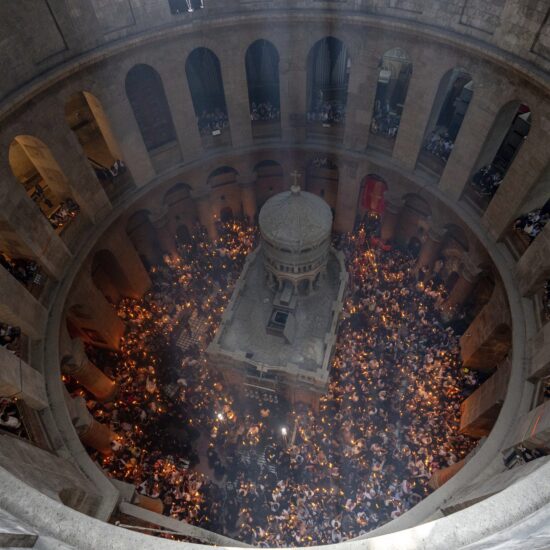The eyes of the world are again focused upon Israel and Gaza as Israelis and Palestinians exchange rocket fire and — as of this writing — the death toll has topped 1,000, most of these casualties among Palestinians in Gaza.

Bill Webb
|
International newscasts constantly flash video footage of clouds of smoke, particularly across the smoldering landscape of Gaza, a strip of land bordering the Mediterranean Sea on the west, touching Egypt to the south and surrounded by Israel to the east and north.
In 1994, Israel granted the right of self-governance to Gaza through the Palestinian Authority. During the past seven years, the Palestinian group Hamas has governed Gaza and its Palestinian residents.
The relationship between Gaza and Israel has always been tense to say the least. Both Israelis and Palestinians have a heightened sense of nationalism. Each has been at odds with each other for millennia, particularly over disputed lands and who should be entitled to claim them as home — or homeland — for its people and to live autonomously.
Israel, home to Israelis and Arabs alike, is a concentration of Jews in a region of the world where it lies alone amid Arab nations of various outlooks and varying relationships with their various neighbors, including Israel.
On the one hand, Israel has prospered economically, has cultivated a strong military and has fostered co-existence between most of its Jewish and Arab residents. Due in part to its diversion of water, Israel has coaxed the desert to bloom again with fruits and vegetables.
Gaza, on the other hand, is overcrowded, with many of its residents impoverished with limited hope for educating and adequately feeding and housing its growing population. Its residents resent Israel and Israelis. A regular complaint from residents in Gaza and in neighboring Arab lands is what they perceive as the unequal distribution of water and the difference the shortage makes among their own residents.
One of the focal points of the Israelis in the current military exchange with Gaza’s Palestinians is the destruction of a series of tunnels that run from Gaza into Israel. They have commonly been referred to as “smuggling tunnels” through which cigarettes, cows and even cars were smuggled into Gaza, from Egypt and from Israel. Cheap fuel from Egypt came through tunnels after Israeli fuel became too expensive. Sometimes, the tunnels served as conduits for people and for weapons. Hamas has taxed goods tunneled into Gaza when it could.
News sources suggest that most of the tunnels into Egypt have been shut down over the past year or so since the ouster of Egyptian leader Mohammed Morsi, whose Muslim Brotherhood was sympathetic to Hamas.
Israeli authorities say destroying tunnels is one of their goals in the current skirmish with Hamas in Gaza. Shelling of strategic targets has revealed some tunnels, and Israelis are adamant about eliminating underground access across under Israel’s borders. They cite the 2006 kidnapping of an Israeli soldier using a tunnel from Gaza. He was held for five years until a swap with Israel involving more than 1,000 Palestinian prisoners.
The most recent military conflict has not been going long but the U.S. and others in the West, as well as the UN Security Council, have urged a cessation to the exchange of strikes between Gaza and Israel. Ceasefires have been attempted but have failed to gain real traction. Israel claims its firing will stop as soon as Palestinians in Gaza cease their shooting into Israel. Palestinian fighters claim they are merely retaliating for destruction and death caused by Israeli strikes.
A particular tragedy is that this is a battle between cousins, so to speak. Both parties claim to be descendants of the patriarch Abraham albeit from separate streams — Israelis from the lineage of Isaac through his mother Sarah and Arabs from Ishmael through Sarah’s maidservant Hagar, although some claim their Arab heritage through the children of Ketura, whom Abraham married following Sarah’s death.
Without question, the conflict between Israel and these Palestinians has festered for thousands of years and, in more recent times, for decades. Every strike into Israel and every rocket fired into Gaza adds a layer of tension that will only add to the festering discontent and hatred between those are not only descendants of Abraham but creations of God himself.
Humankind throughout history has not been very effective at brokering peace between nations and people, especially groups that live close to each other and harbor longstanding grudges. No ceasefire by itself will resolve these, but this will be a necessary first step.
Frankly, as unlikely as ceasefire seems, anything more appears impossible in the eyes of many. Leaders who have a passionate regard for the safety and the well-being of their own people have a responsibility to do what may seem incomprehensible, take the first steps to address barriers to mutual respect and well-being.
How to do that will become more apparent as the sides resolve to take the first steps toward this goal. The killing of neighbors is senseless.
Bill Webb is editor of Word & Way.






